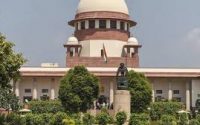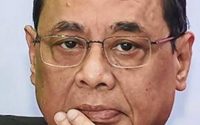$100 Website Offer
Get your personal website + domain for just $100.
Limited Time Offer!
Claim Your Website NowAyodhya verdict to impact minds of millions: Muslim parties to SC in sealed cover.
Source – hindustantimes.com
The Muslim parties in the Ram Janmabhoomi-Babri Masjid title suit have urged the Supreme Court to keep in mind that its verdict in the case will “impact future generations”, and to ensure that it reflects India’s constitutional values.
The parties filed their plea to mould the relief (narrow down the arguments and tell the court the specific points a party wants it to adjudicate on) in the case in a sealed cover on Saturday. However, in the wake of objections raised by advocates for the Hindu parties, against filing of submissions by Muslims in a sealed cover, the counsel for the Muslim side made their plea public on Sunday.
“The decision by this hon’ble court, whichever way it goes, will impact future generations. It will also have consequences for the polity of this country. This court’s decision may impact the minds of millions who are citizens of this country and who believe in constitutional values embraced by all when India was declared a republic on January 26, 1950,” the Muslim parties said on the question of moulding of relief.
“Since the judgement of this court will have far reaching implications, it is for the court to consider the consequences of its historic judgement by moulding the relief in a fashion that will reflect the constitutional values that this great nation espouses,” they added.
“The parties have reposed faith in the judicial system and said the court will uphold the “multi-religious and multicultural values in resolving the issues confronting it.”
“Moulding the relief is the responsibility of this court, which itself is the sentinel of our Constitution,” read the statement issued by senior advocate Rajeev Dhavan and other lawyers for the Muslim side.
Ram Lalla Virajman, the deity and a petitioner, has, in written submissions filed on Saturday, staked claim not just over the 2.77-acre disputed land in Ayodhya but also the 67.703 acres acquired by the Centre in 1993. The entire chunk of land would be needed for the convenience of the devotees when a grand Ram temple is built at the disputed site, the submission said.
The Centre had acquired the land in and around the disputed site following the demolition of the Babri Masjid in 1992. Both the disputed and the acquired land were important to Hindus, Ram Lalla and Hindu Mahasabha’s counsel, senior advocates K Parasaran and CS Vaidynathan had submitted.
“The small area, which is the subject matter of the suit, is one integral unit and is indivisible. The convenience of worshippers and devotees necessitates the entire disputed area to offer worship at Ram Janmasthan and the acquired area,” the written statement said.
The counsel also pointed out that the government, with which the acquired land is currently vested, had already stated in court that its “action will be in support of the party which succeeds in the proceedings”.
The other major party in the dispute — the Nirmohi Akhara — had “disentitled themselves from any relief” and sought possession of the disputed area saying it had ‘Shebait’ rights there since the 18th century. A shebait under Hindu law is entrusted with the task of maintaining and preserving an idol and its property. On October 16, a Constitution bench of the Supreme Court wrapped up arguments in the decades-old land dispute. The court was hearing cross appeals against the Allahabad HC, which had in its September 30, 2010, decision ordered a three-way division of the disputed area, giving one-third each to Ramlalla Virajman, Sunni Waqf Board and Nirmohi Akhara.



